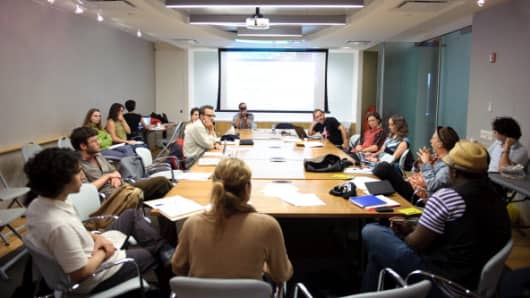As we head into 2014, it is a good thing to be able to say that today no right thinking person would disagree with the concept that advancement in one's career and prospects should be down solely to merit. One's nationality, gender, skin color, physical ability or disability, sexual orientation or religious beliefs should have precisely no bearing in the hiring and promotion decision. And a glorious thing for human development that is.
In the 21st century many global companies have moved beyond a simple human rights concept to one of actively promoting diversity. Workforces in many industries do not only exhibit more diversity than they ever have in history, companies actively encourage the growth of such diversity and like to be seen to be promoting it.
So while one could never say that the job is done – some countries, industries and companies are more ahead of the game than others – it's time to move to the next challenge. And that is diversity of thought.
It matters not a jot if the company ExCo or Board contains a diverse mix of people if they all think in the same way. If they all accept what the latest management consultant thought-speak is, if they believe the surface platitudes of what they read in corporate comms statements, if they accept everything at face value without challenge and without delving into the substance – then their physical diversity is irrelevant. What is needed is diversity of thought, and visual diversity is no guarantee of this.
(Read more: Less central banks, more private sector)
For various reasons ranging from lack of an inclusive culture to the fear of saying something career-limiting, many employees end up speaking as if they were cardboard cut-out corporate automatons. Indeed some may have even started out that way. How else to explain the incredible negative value-added content and turgid atmosphere of so many internal meetings in companies?
Diversity of thought is vital if economies are to meet the development challenges they face in the post-crash world. Continuing recession, ageing populations, falling productivity and the funding burden of the welfare state all present a severe problem for Western economies. The private sector will need to grow at a faster pace than it has done in the last 5 years if it is to generate sufficient employment opportunities and a big enough tax base for governments to meet their payment needs.
(Read more: Is a 'panic taper'the real risk to markets?)
And this demands an ability to think for oneself, because the path to ruin is littered with those companies whose senior executives didn't question and didn't challenge. "Group think" has already been identified as something for companies to avoid, but diversity of thought is something else entirely, and subtly distinct. It refers to an ability to think for oneself, to look for substance beneath the surface platitudes and a willingness to challenge corporate-speak.
Of course, this will only be forthcoming if the company fosters an environment that encourages it. All companies speak about an open and engaging culture but in most cases this is just a platitude, it rarely exists in reality. For diversity of thought to be forthcoming, there must be an open culture, with no senior management cliques, no inner circles and no favorites. This is a rare thing to observe in corporate environments.
(Read more: Career essentials: Seven body language tips)
Companies by and large get the equal opportunities bit. In principle at least, diversity is no longer an issue. Diversity of thought however is much rarer, and not connected to gender, colour, religion and so on. It's the next big cultural challenge for companies.
And with that thought in mind, I wish you all Merry Xmas and the best for the New Year. I'll be back on 9 Jan with the first column of 2014…
Professor Moorad Choudhry is at the Department of Mathematical Sciences, Brunel University and author of The Principles of Banking (John Wiley & Sons 2012).


